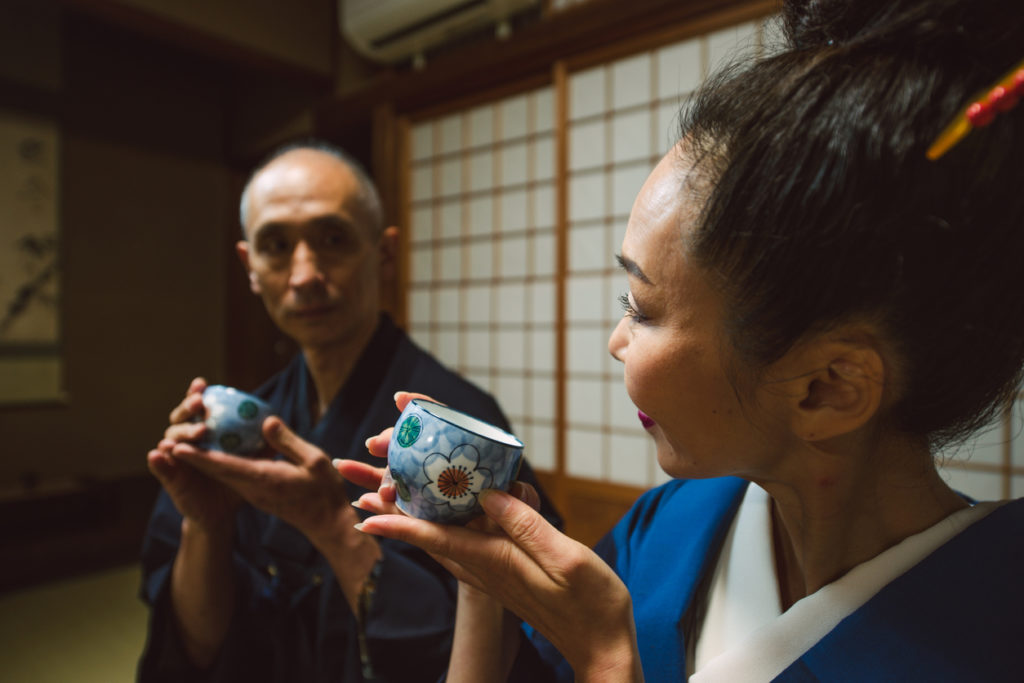Is Japan’s Younger Generation Bound To Change The Nation’s Problem With Adultery?
A Conversation With 15 Japanese Men Shows That Change Is On Its Way
While Japan has been historically treating affairs with a blind eye for longer than it should have, a conversation with 15 Japanese men, five of whom are in an international relationship, hints that the situation could be gradually evolving — for the better.
Having a fling, cheating, an affair, stepping out, two-timing, side piece — there are plenty of different ways to talk about adultery in English. In Japan, things are simpler: there are two main terms referring to this, uwaki (浮気, cheating) and furin (不倫, extramarital affair). The first is a casual term often being used to describe a onetime drunken mistake, the fastest way of breaking off a bad relationship, or just a means of adding some spice into a sexless but otherwise functional relationship. The latter carries connotations of immorality, impropriety, and a criminal offense and has been repeatedly used in the Japanese media to bash celebrity after celebrity (remember Becky?).
But while cheating is a universal topic, one that is serious enough to change a person’s life, I can’t help but feel that it is just way too common here in Japan. There are about five taken men trolling for sex for every single man on dating apps, but you’ll also find plenty of married women there too, often with captions that mention “not after anything serious” in their profiles. Huh? Sorry but not sorry, there’s something odd here.

Adultery in Japan — a historical perspective
Historically speaking, adultery in Japan was not a topic of discussion in the past. In ancient Japan, marriage was more of an arrangement between men and women, and either party could look elsewhere without suffering the consequences. In more modern times (pre- and post-war) adultery was considered “a thing” many husbands did — the prevalent social consent was that they worked hard all day to earn money for the family and deserved an “outlet” for that stress.
The sheer amount of “pleasure quarters” to satisfy those needs — from Tokyo’s Kabukicho to Sapporo’s Susukino and everything in-between — made (and still continues to make) adultery possible at any given time. Long working hours, regular nomikai with clients and coworkers, love hotels and hostess bars being just everywhere — and the cost of getting some extra fun being never too high, all made it too easy to cross the line. Housewives, on the other hand, were never in a position to have desires like that, and if she did, she better never acted on them. To act on them would be emasculating for her husband and embarrassing her children.

Too many opportunities to cross the line: Up until some decades ago it was normal for Japanese men to be out of the home too frequently.
A Japanese man in his 70s, with whom I had the chance to recently discuss this topic, summed up what adultery in Japan once meant for people of his generation:
“During the Bubble (era), and even before then, women were housewives and mothers — you couldn’t expect her to also want to perform for her husband after having children. So, you had snack bars, karaoke bars, hostess clubs to take clients and coworkers too, and if you happened to stay out all night with one of the women there, then it wasn’t a big deal. It was a stress relief and the right of a man to do that. It trapped women into a life of just tolerating their husbands. I think that’s why so many men of my generation ended up being divorced at retirement age.” (Masa, 72).
[Y]ou had snack bars, karaoke bars, hostess clubs to take clients and coworkers too, and if you happened to stay out all night with one of the women there, it wasn’t a big deal.
But are things changing in modern-day Japan where women are slowly but steadily becoming more independent and rising to an equal status as men? With later marriages, more marriages out of love vs. the historical omiai (arranged marriages), and less financial dependency on husbands among other potential reasons, it seems that Japan’s tolerance for cheating is indeed decreasing.
Adultery in modern-day Japan: Personal views
In a bit to learn more about what men think of the topic today, I spoke with 15 Japanese men of various ages, all of whom are personal acquaintances, and five of them are in an international relationship. From our conversations, I found out that the stance that these younger men in Japan have today is very different from this of the older generations. Many of them said that they can’t imagine forgiving a partner for having sex with someone else. Unlike in Masa’s generation, 90 percent of the surveyed men were very against the idea of picking up someone for a fling.

“When I met my wife, I lost interest in other women:” Are younger Japanese men more serious about long-term relationships and marriage?
“It just sounds so cheap — just finding some girl and sleeping with her, just because I can or because I’m drunk? Wouldn’t that make me a loser?” (Kenta, 24)
“I’ve cheated before, but when I met my wife, I lost interest in other women. Even when I have to go to bars or places with clients/co-workers, I don’t have any interest in sleeping with them. They’re not sex dolls. They’re people.” (Taka, 37)
It doesn’t make any sense to cheat on her after going through so much together.
Thoughts on adultery were even clearer among the five international couples I spoke to: cheating was absolutely unacceptable, and, particularly to the Japanese men in the relationship, unthinkable.
“My [non-Japanese] wife and I had to put up with a lot in order to be seen as a real couple by society and even by our families. It doesn’t make any sense to cheat on her after going through so much together.” (Hiro, 31).
“My husband is Japanese, and people often assume I’m his co-worker or English teacher. I’ve even had women hit on him in front of me before — but he just laughs it off, and kisses me — even in public — so I don’t have anything to worry about.” (Sarah, 33).
When asked individually and in couples, both the Japanese men and their non-Japanese partners agreed that because of the depth of communication and issues that they had experienced in first starting off in a relationship, they felt that having an affair was more of a personal failure than anything else.
“At first, it was hard — we struggled to really understand each other from a cultural perspective, and sometimes, I did consider just finding a Japanese girlfriend instead, my friends said it’d be easier than dating a foreign girl, but […] we were able to get better at communicating, and, because we could talk honestly with each other, sleeping with someone else seems so wrong. I couldn’t do that to her.” (Yuta, 35).
While this survey is indeed too minor to make any conclusions, it was indeed interesting to see that many young Japanese men are viewing relationships in a very different and more positive way in comparison to what their fathers and grandfathers may have thought in their time. We’ll explore where this change could be possibly coming from in a separate article coming soon. Stay tuned!
Do you agree that younger men are changing their views on cheating in Japan? If yes, why do you think this is happening? Share your thoughts in the comments below.
















Leave a Reply